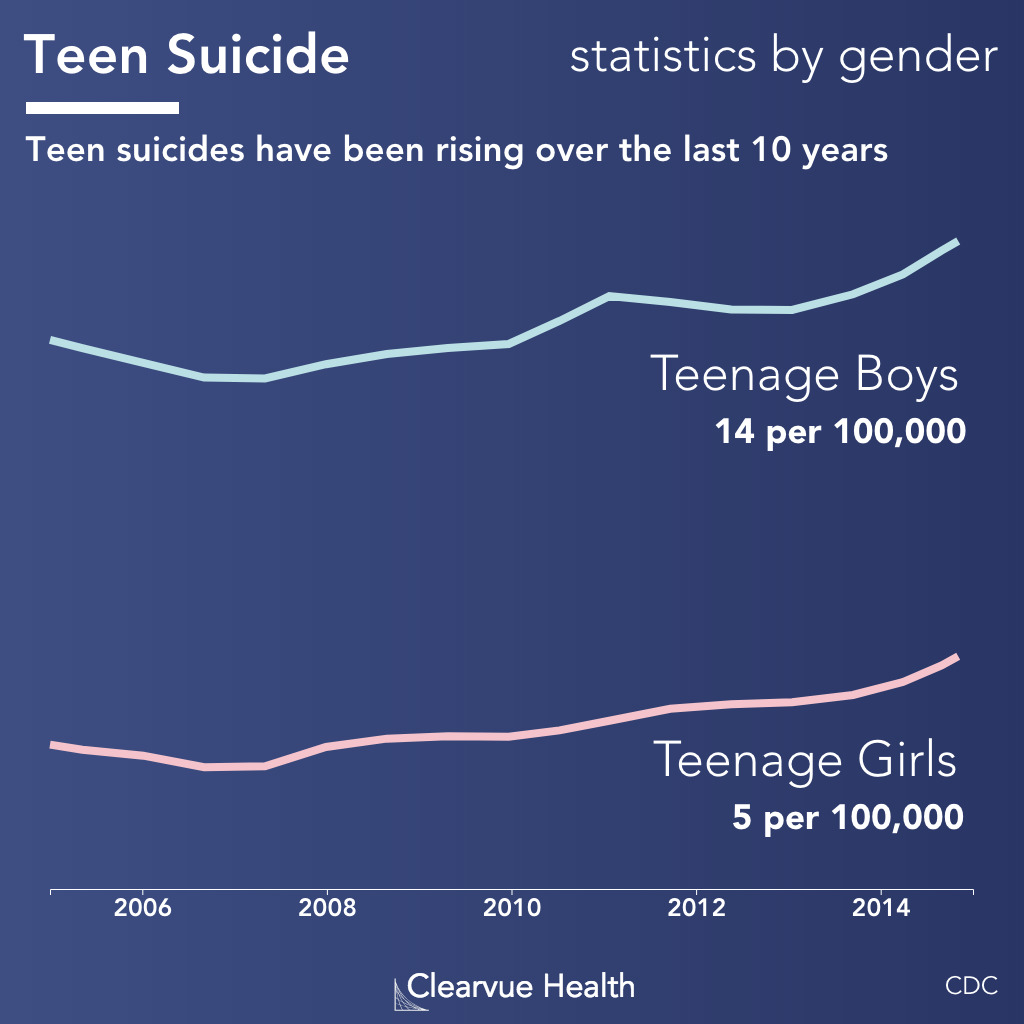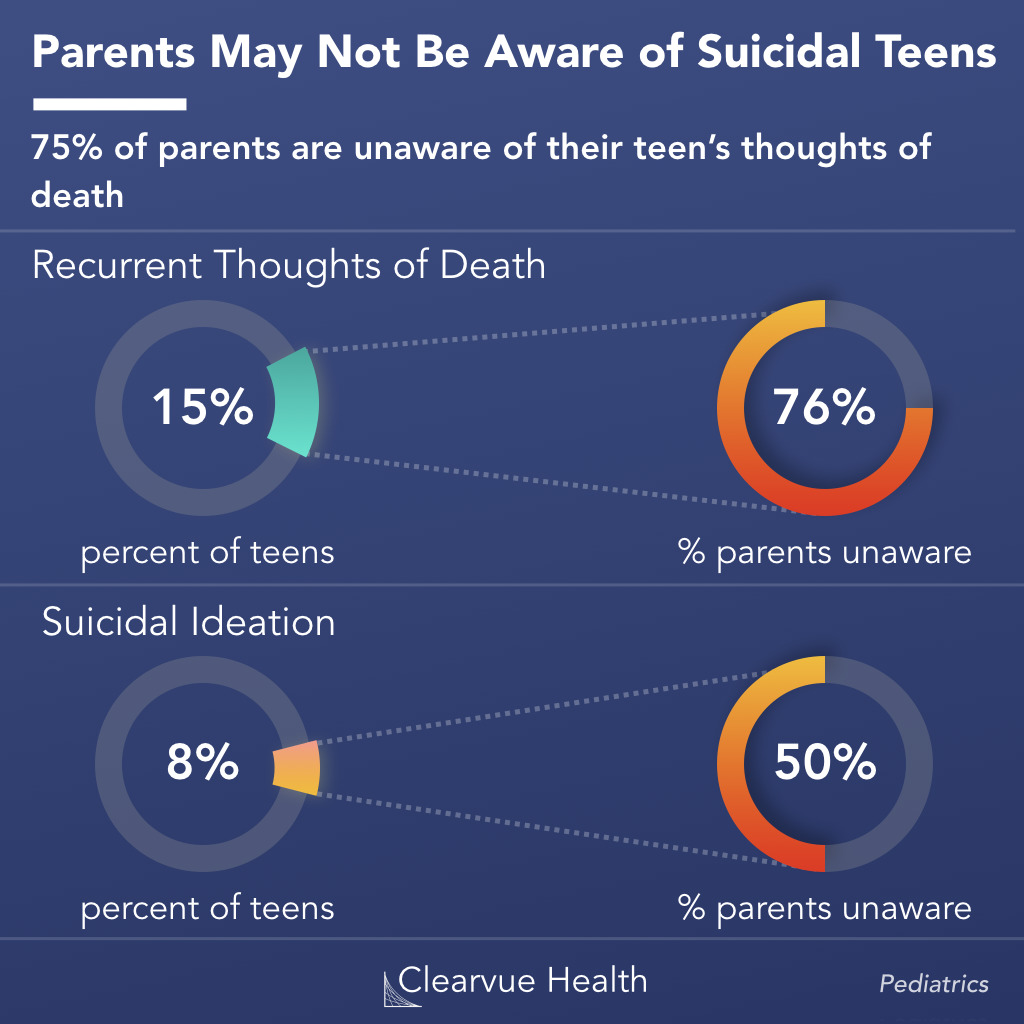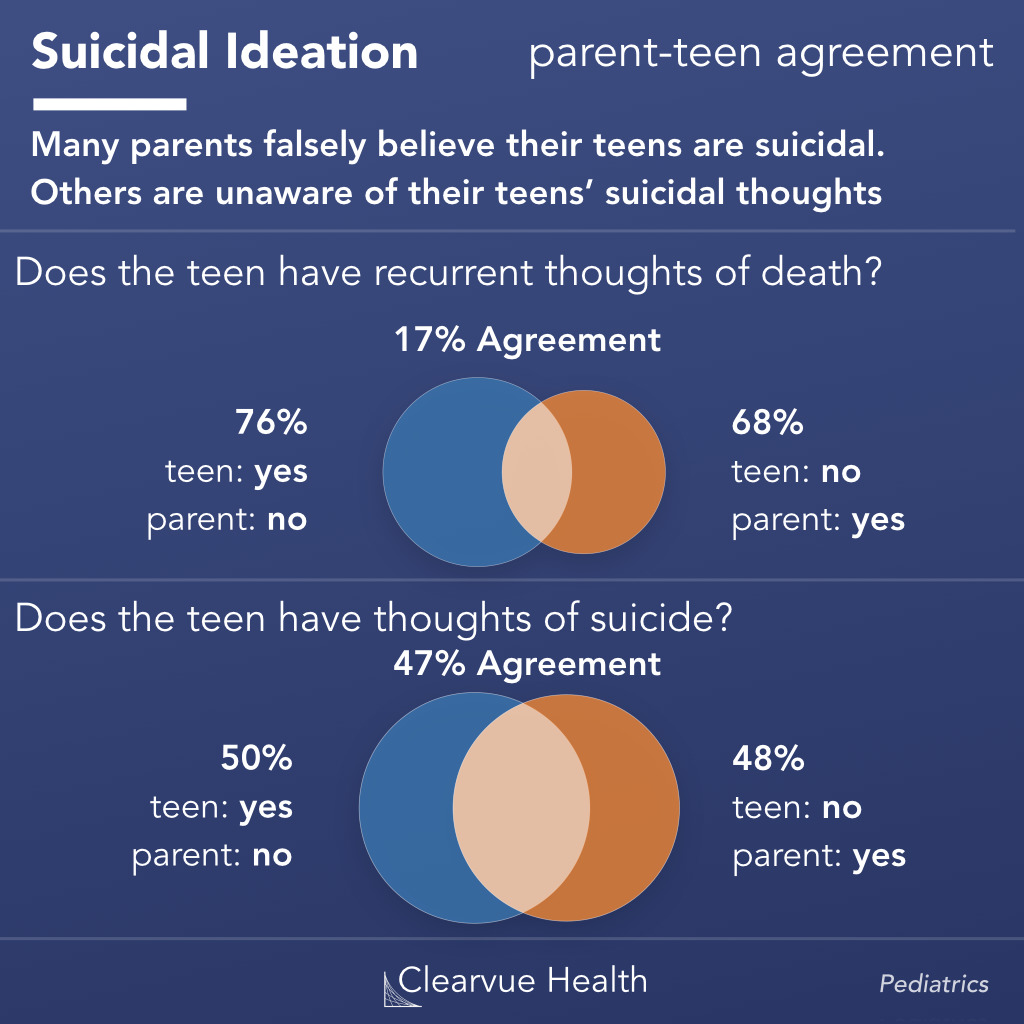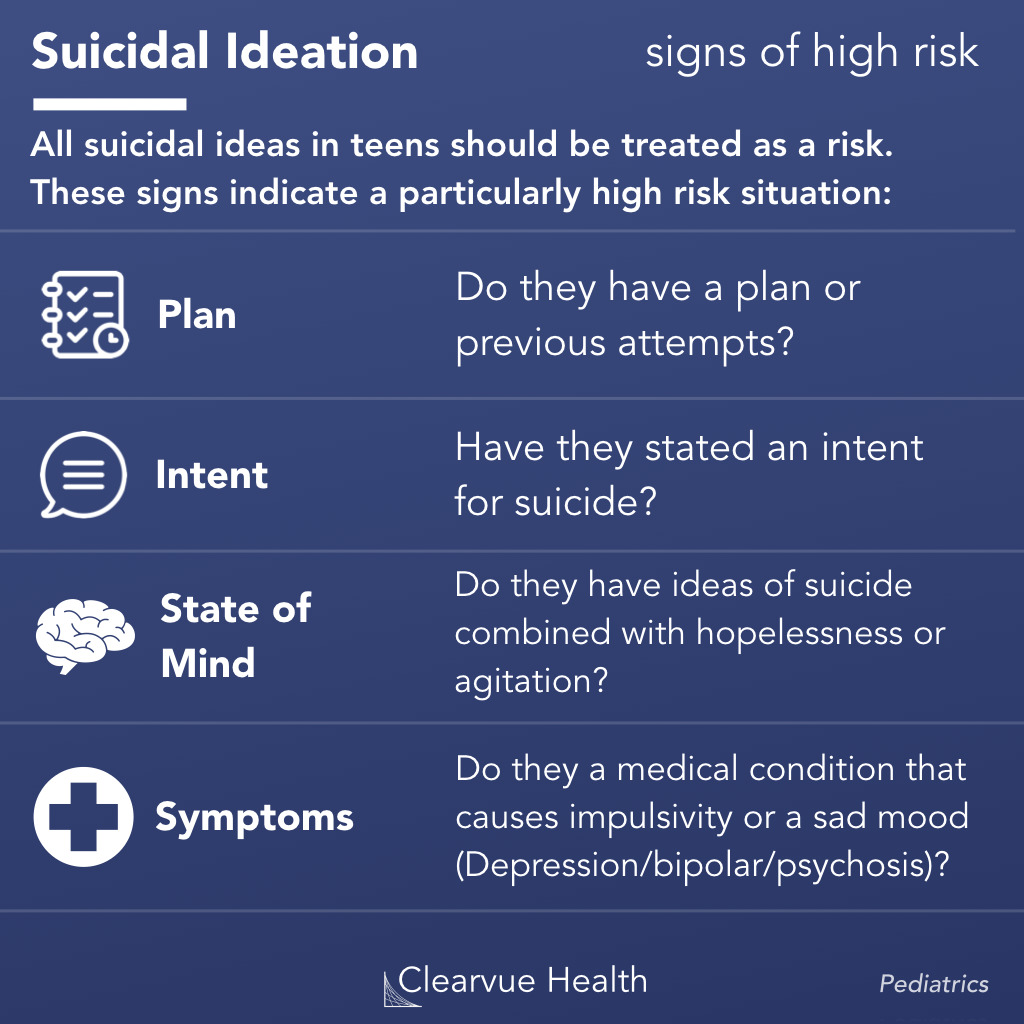Teen Suicide Trends
Teenagers are in the prime of their lives in terms of health. Their hearts are strong, their minds are sharp, and their immune systems are capable.
However, they have a high risk of injury and mortality from self inflicted injury, suicide, and accidents.

According to the CDC, suicide is the second leading cause of death for teenagers, after accidents.
Since 2005, suicide rates in teenage boys and girls has been rising. Boys have a much higher suicide rate than girls.
Parental Knowledge of Adolescent Suicidality

Parents are the first line of defense against suicide. They know their kids the best and are more invested in their health than anyone else.
Unfortunately, parents don’t know their kids as well as they think they do.
In a study of 5,137 teens and their parents, researchers set out to find how well parents know their teens.
Source: Parent-Adolescent Agreement About Adolescents’ Suicidal Thoughts
They found that half of parents did not know of their teen’s admitted suicide intention. This means that half of all teens studied were willing to admit their suicide intent to researchers, but were not willing to or did not have the chance to tell their parents.
Similarly, 76% of parents who had teens with recurrent thoughts of death were unaware of their teens’ thoughts of death. According to researchers these are significant risk factors for suicide.
Overlap between parent and teen

Nearly just as many parents believed their kids were suicidal when they kids themselves denied any suicidal ideation.
Similarly, most parents who thought their kids had recurrent thoughts of death were wrong according to their teens.
High Risk Suicidal Ideation

In order to provide a better understanding of suicide and the risks behind it, we’ve summarized several known factors that indicate a particularly high risk for teens with suicidal thoughts. All suicidal thoughts should be treated seriously, there is no such thing as a low risk suicidal thought.
These were based off of a paper published by the American Academy of Pediatrics, the leading body of pediatricians in the United States.
Source: Suicide and Suicide Attempts in Adolescents
Teens with a plan for how they will attempt their suicide, or have attempted suicide in the past, are at a much higher risk. Teens who have stated their intention, with or without a plan, are similarly at a higher risk.
If a teen is experiencing hopelessness or agitation, these can increase the risk of suicide if combined with suicidal ideation. Similarly, a depressed mood or impulsivity from an underlying psychiatric condition can increase the risk of suicide for a teen with suicidal thoughts.
Conclusion: know your kids and get help when needed
Most teens who have suicidal thoughts don’t get the help that they need. Parents are trying, but as the data shows, they overestimate just how well they know their teens.
If you know someone who has thoughts of suicide, get help. There are effective treatments for depression or other mood disorders.






































